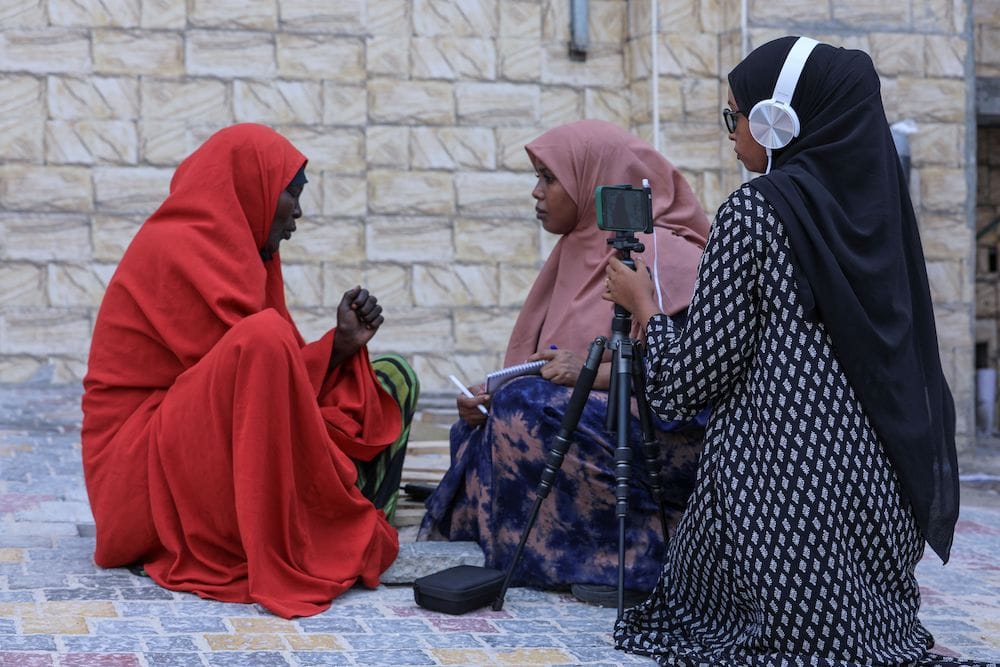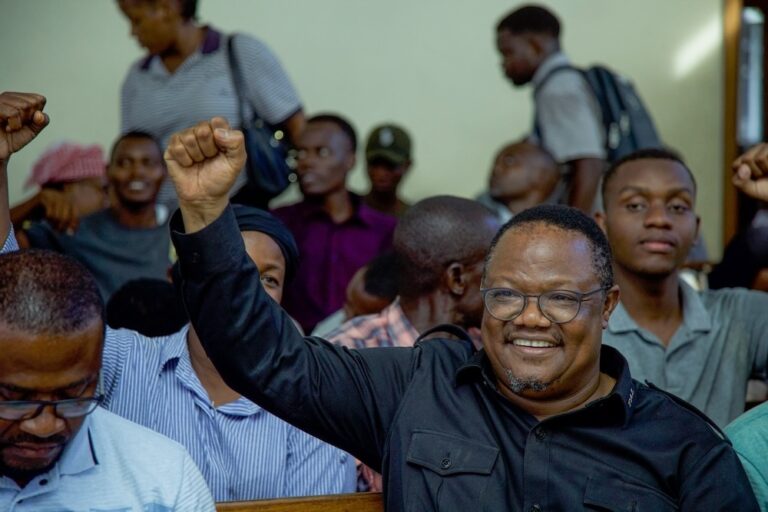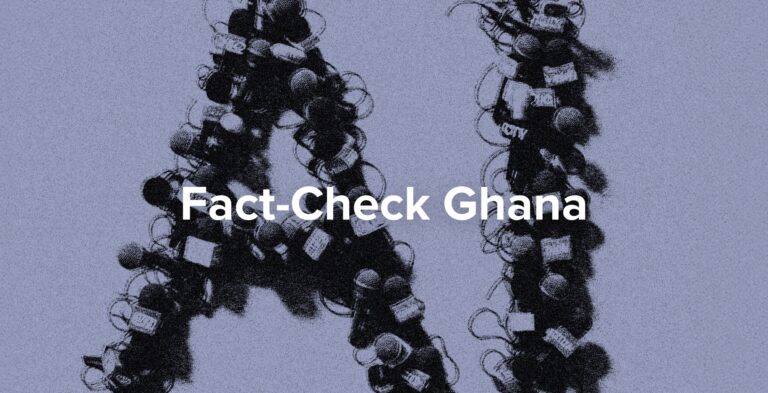IFEX’s Regional Editor Reyhana Masters digs into three important stories from 2022 in Africa: an ACHPR Resolution that opens a door to combat online violence against women journalists, strong regional partnerships for freedom of expression, and the disruption of the region's airwaves.
Broadcasting struggles
Emerging out of the peak pandemic era a little battered and financially fragile, the broadcasting sector – which was already struggling with issues of sustainabililty and viability in the pre-Covid-19 period – found itself under siege.
Unable to afford the fees required by the national regulatory authorities, radio stations and in some instances television stations were taken off air. Aside from the loss of jobs, the mass closures have had a devastating impact on citizens’ access to information – radio remains the most popular medium on the African continent.
Its relevancy in Africa is clearly articulated in UNESCO’s 2022 World Radio Day statement: “radio remains affordable and can be listened to everywhere, even when electricity or connectivity are not reliable. The medium is therefore one of the most popular means of communication, used by an overwhelming majority of people.”
Which is precisely why the closure of 79 radio stations by the government of Guinea-Bissau in April of last year was seen as an assault on media freedom. Augusto Mario da Silva, president of the Guinean League for Human Rights (LGDH), described it as government making the “final push” to eliminate the democratic rule of law and interfere in the editorial work of the media.
The ability to remedy their situation and finalise payment of licence fees within the 72-hour deadline issued by Guinea-Bissau’s Ministry of Social Communication was financially challenging for the majority of radio stations. DW [Deutsche Welle] reports that “only 9 out of 88 registered radio stations appeared at the Communications Ministry to renew their licenses” within the stipulated time.
Regional media freedom advocacy organisation the Media Foundation for West Africa (MFWA) went into immediate action, and – with local partner the Union of Journalists and Media Technicians (SINJOTECS) and the association of community broadcasters (RENARC) – organised a meeting with relevant officials of the Guinea-Bissau government.
The six-member delegation, led by MFWA senior programme officer Daisy Prempeh, was able to persuade the Ministry to review its decision to close the affected radio stations. The dialogue between the stakeholders materialised into the government of Guinea-Bissau agreeing to allow staggered payment of outstanding fees, and approval for “the stations to reopen while they honoured their obligations.”
Unfortunately, advances such as this are often followed by setbacks. In mid-November, Guinea-Bissau’s ministries of social communication and of finance issued a joint statement announcing new and excessive media regulatory fees. As MFWA’s programme manager for freedom of expression Muheeb Saeed pointed out:
“The massive hike in regulatory fees for the media will therefore further weaken the sector financially. Some media houses might be forced to close, and further investment in the sector could be discouraged. The hike will have adverse consequences for the public’s right to information.”
Malawian and Nigerian authorities follow suit
In similar fashion to actions taken in Guinea-Bissau, the Malawi Communications Regulatory Authority (MACRA) steadily started closing down radio stations in August 2022, following a warning that it would revoke licences of broadcasting outlets unable to pay the required fees, as well as those of stations failing to comply with relevant licensing conditions.
Public opinion in Malawi was divided at the time, and as DW reported: “media experts are applauding the enforcement of a law that has long not been applied. Others are concerned that the government is trying to silence its critics.”
The latter suspicion was reinforced by an assertion by Rainbow Television – that despite paying the outstanding fees of about USD$10,000, they were still shut down.
The Malawi chapter of the Media Institute of Southern Africa swiftly reached out to relevant authorities, pointing out that these closures would erode “media and democratic gains of the past 29 years.”
In their submission to the parliamentary committee on media, information and communication, MISA Malawi acknowledged the broadcasting sector’s obligation to pay required fees, but argued “that the general economic crisis the country is experiencing has not spared the media sector, as advertising, the main source of revenue for most media businesses, is dwindling.” It went on to recommend, “a holistic and proactive approach to ensure that the media survives post the Covid-19 pandemic.”
MISA’s Malawi’s efforts were bolstered by MISA’s regional office, which wrote to President Lazarus Chakwera outlining the country’s obligation to the principles laid out in the African Commission on Human and Peoples’ Rights’ Declaration on Freedom of Expression and Access to Information. The letter reiterated the “call for dialogue and engagement on the broadcasting licences issue before any drastic action is taken.”
Despite this robust and rigorous advocacy, and in contrast to authorities in Guinea-Bissau, MACRA has not agreed to any form of reprieve, and the defaulting radio stations in Malawi remain closed.
At the same time that MACRA was shutting down radio stations in Malawi, Nigeria’s National Broadcasting Commission (NBC) announced the revocation of 52 licences of both privately and government-owned radio and television stations for allegedly owing the Commission N2.6 billion [approximately USD 5.8 million] licence renewal fees since 2015.
This decision was immediately contested by the Nigerian Editors Guild and the Socio-Economic Rights and Accountability Project (SERAP), which launched a lawsuit against President Muhammadu Buhari and the NBC. Following a federal high court order, the NBC backtracked, and announced a temporary suspension of its decision to revoke the licenses of the broadcast stations.
As we look ahead to 2023, it is worth noting that research carried out by the Africa Media Development Initiative has reinforced the opinion that radio is dominating the mass media spectrum in the region, with state-controlled radio services still commanding the biggest audiences. With this in mind it is evident that more effort needs to be exerted to support the independent broadcasting sector and negotiate for less prohibitive licensing fees.

The Gambia, 19 April 2022. Baba Hydara holds a poster of his late father, prominent journalist Deyda Hydara, killed in 2004; a trial of those accused in the killing was to be held on 25 April 2022, in Celle, Germany. MUHAMADOU BITTAYE/AFP via Getty Images
Persecuting journalists instead of prosecuting wrongdoers
The media sector has gone through yet another gruelling year on the continent.
Attacks against the media are on the rise, and are increasingly menacing in nature. Intimidation, blatant offline and online threats, physical assaults, arbitrary arrests and detentions, and, increasingly, the use of laws and other measures by governments to restrict freedom of expression, all contribute to the worsening context. The rights of journalists as well as those of the media are being continually undermined, and the culture of impunity continues to grow, as African governments persecute journalists instead of prosecuting wrongdoers.
In separate incidents in 2022, journalists Evariste Djaï-Loramadji and Orédjé Narcisse were killed in Chad. Within a space of a month, two media practitioners – Mohamed Isse Koonaa and Ahmed Mohamed Shukur – were killed in Somalia. Michel Hangi, a radio technician for a radio station in North Kivu province, DRC, was shot on his way home, after finishing a shift. Self-exiled investigative Pakistani journalist Arshad Sharif was shot and killed in Kenya.
So far, only the fatal shooting of Sharif, at a police checkpoint three hours outside Kenya’s capital, has been investigated. A fact-finding team of officers from Pakistan’s Intelligence Bureau (IB) and the Federal Investigation Agency (FIA) dismissed the initial explanation that it was an accidental shooting, and concluded that it was a targeted assassination.
The lack of political will to prosecute perpetrators and the inadequacy of investigations into violations against the media is emboldening perpetrators. This issue dominated this year’s International Day to End Impunity for Crimes Against Journalists (IDEI) commemorations on the continent, on 2 November 2022.
The Gambia Press Union (GPU) pointed out that not a single perpetrator has been prosecuted in the last five years, even though there have been more than 15 incidents of physical assaults on journalists and media professionals in The Gambia.
MFWA drove home this point, highlighting the numerous unresolved cases of impunity for killings, kidnappings and brutal assaults against journalists recorded across West Africa over the past five years.
What’s ahead in 2023? Based on the meeting held by MFWA and the Spaces of Solidarity workshop organised by MISA, we are seeing a focus now on building stronger networks and collaborative partnerships intended to ensure the safety and security of journalists. Increased collaboration between key stakeholders can support strengthened continental advocacy actions around media freedom and freedom of expression violations.

Protesters cross arms during a rally for gender equality on International Women’s Day, in Nakuru, Kenya, 3 March 2022. James Wakibia/SOPA Images/LightRocket via Getty Images
New resolution bolsters the fight against digital violence against women
In 2022, pushing back against the increasing harassment, intimidation and discrimination of women in the media – which occurs online, offline, and in the newsroom – was given a boost by the passage of ACHPR Resolution 522 on the Protection of Women Against Digital Violence in Africa.
Resolution 522 is the first “soft law” [co-operation based on instruments that are not legally binding] policy adopted by a continental body that officially recognises online violence as a violation of women’s rights. As explained on the Jumelages and Partenariats website, the Resolution also provides nine recommendations to African governments in relation to digital violence.
Online violence against women, including against women journalists, is a serious problem on the African continent, as it is around the world. The real-life impact on even the most experienced veteran journalists is described by South African journalist and newspaper editor Ferial Haffajee: “Every morning, I pick up my phone and check WhatsApp messages. Then, I open my Twitter feed. ‘Bitch!’ reads a response to something I’ve posted or written or reported. I block. ‘Cunt,’ reads another. Block. ‘Racist, go back home,’ says another. Online abuse has become so commonplace that taking it in and blocking is part of the daily routine now.”
As we enter a new year, further progress could come from establishing a standardised definition of online violence, and encouraging organisations to document online attacks against women journalists. African NGOs could drive a process of having online violations against women included in monitoring media freedom violations. It is also important for media organisations to have policies in place to address online violence and harassment within their own ranks, and to provide a safe and supportive work environment for all employees.
Media freedom advocacy organisations and the media sector have a role to play in addressing this issue more strategically. There is a need for these organisations to ramp up their efforts in providing support and resources to journalists and other media professionals who have experienced online violence. PEN America’s first-of-its-kind manual in Swahili will go a long way toward supporting East African media rights and human rights advocates of all genders in their defence against online harassment and abuse.
In brief …
President Hichelema’s Christmas gift to Zambians in December was Penal Code (Amendment) Bill number 25 of 2022, which abolishes the death penalty and repeals criminal defamation of the president.
Nigerian Islamic cleric Sheikh Abduljabbar Nasiru Kabara was sentenced to death by upper Sharia Court in the state of Kano on blasphemy charges.
Officials in Somalia’s presidential issued a directive demanding media editors and editors submit a written copy of their news headlines ahead of their daily broadcasts.



